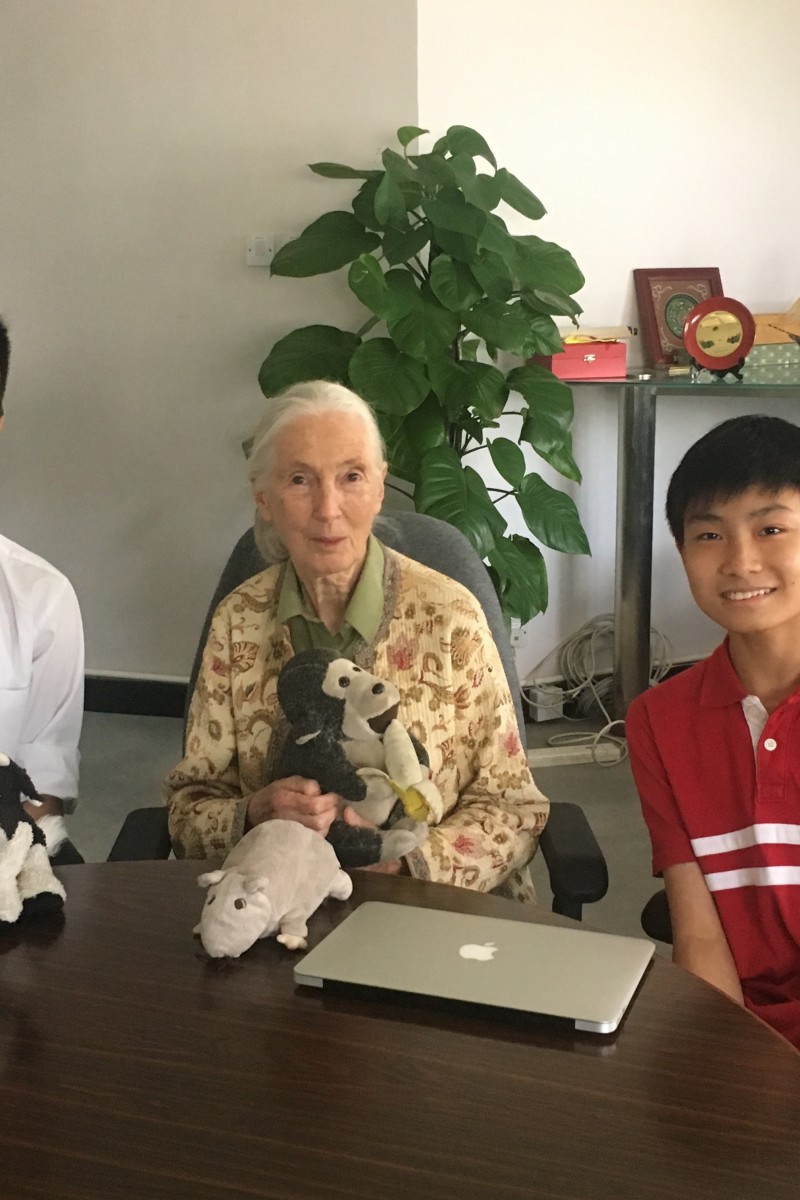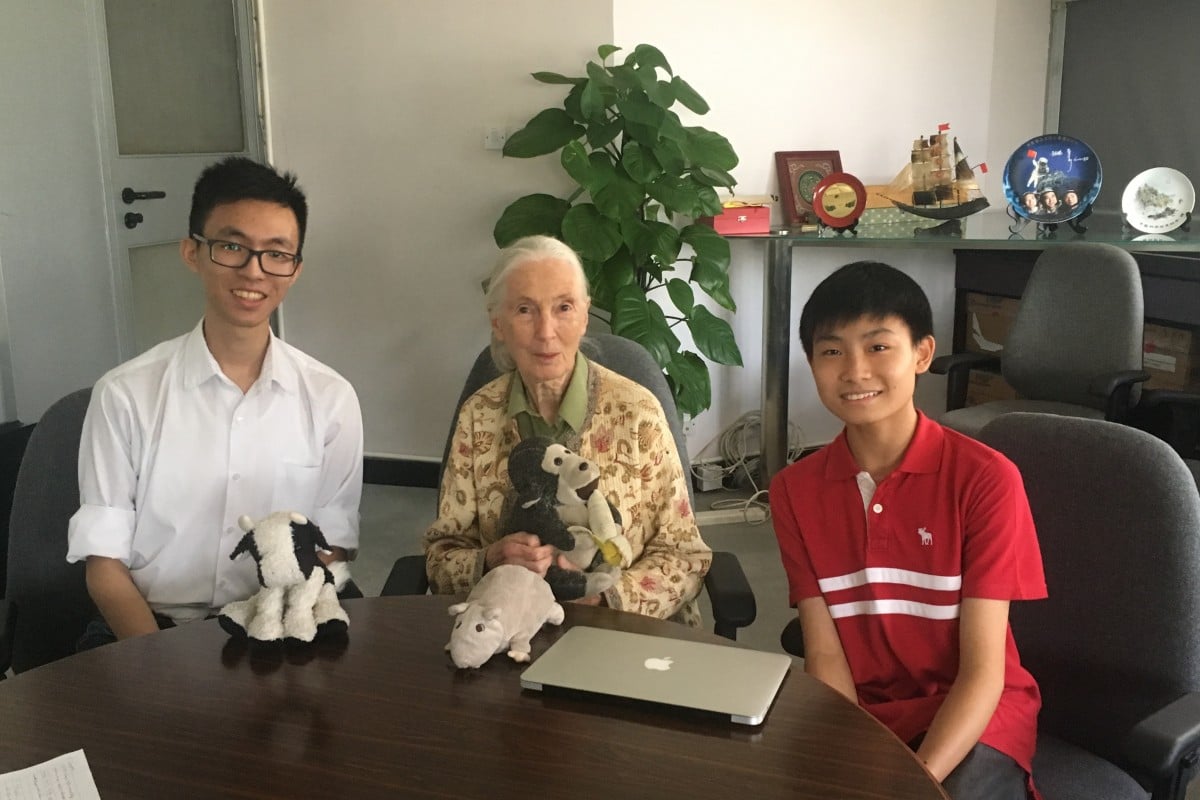
Jane Goodall on how human behaviour affects the natural world, and why she believes young people are going to change the world
Jane Goodall, the world’s foremost expert on chimpanzees, tells our junior reporters that young people hold the key to global change
 JRs Adrian Wong and Kyle Leung met Jane Goodall, who talked about her days in Africa.
JRs Adrian Wong and Kyle Leung met Jane Goodall, who talked about her days in Africa. Nearly 60 years ago, Dr Jane Goodall did something extraordinary: she travelled, alone, into the heart of Africa. She had no reason to go other than her passion for animals and her thirst for adventure – this led her to meet Louis Leakey, the famed archaeologist, who tasked her with studying native Tanzanian chimpanzees.
There, she managed to uncover something truly remarkable: that chimps are much more like us than we’d once thought.
Goodall was in Hong Kong earlier this month to give a lecture at the Science Museum in Tsim Sha Tsui. Before she did, the 84-year-old chatted briefly with Young Post about her hopes for young people, her favourite chimpanzee, and why she still travels the world to give lectures.
One of Goodall’s most memorable moments from her life was one when she met the first chimpanzee that would allow the researcher to observe him.
“I was crawling through the bushes. When I pushed through a tangle of branches, there stood a chimp with white, beardlike facial hair, and it was like he was there waiting for me,” she recalled. “I slowly held my hand out to him as a sign of peace – but he looked away like he was refusing my offer.
“I knew, from that, that he was a clever animal. I tried again, and this time he looked me straight in the eye, and we had a sort of connection, like we understood each other.”
This first encounter with David Greybeard, as she later named him, was one of the many remarkable experiences she had during her stay in Africa, where she became the only human to be accepted into chimpanzee society. Even now, after all these years, David remains Goodall’s favourite chimp, she said.
Throughout our interview with the famed researcher, Goodall held onto a few stuffed animals. At first glance, they seemed nothing out of the ordinary: a baby chimpanzee holding a banana, a rat, and a cow. For Goodall, though, the two stuffed toys have significant meaning and are personal symbols of encouragement and motivation.
The baby chimp for example, Goodall said, represents her career. She has devoted much of her life recording the behaviour of chimpanzees. The relationship between Goodall and chimps, though, has not all been science-based.
12 fun facts about monkeys ... or animals you THOUGHT were monkeys but aren't
Behind the theories, statistics, and impersonal notes grew a powerful, emotional connection between the observer and the observed. From this connection grew a desire to help improve their well-being by making people aware of how their actions affect the world.
As a result, Goodall would say her role has changed from being a primatologist to being a prominent advocate for animal rights and environmental protection. She travels often, lecturing and interacting with all kinds of people, and her Roots and Shoots programme (founded in 1991), was set up to “empower young people to become compassionate leaders, who will make right choices to build a better world”.
Goodall believes young people are the key to global change, though she does not think that age ought to be a factor in deciding not to do what needs to be done.
“I’m still motivated to travel 300 days a year despite my age,” she said. “I think if we really unite and contribute in our own ways, then everyone can, and will, make a difference.”
She added: “There’s so much cruelty in the world today: factory farms, environmental pollution, unregulated waste … because we humans are selfish. Sure, we need money to live, but we can’t live for money.
“We need to change our ways, and to do that, we need to change how people think about animals and Mother Nature.”